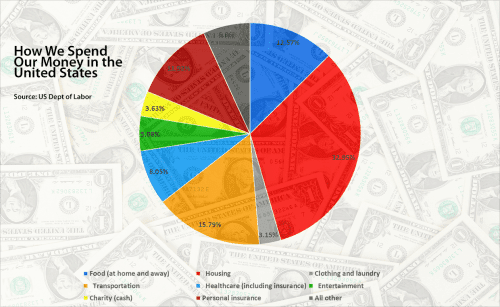Buying a home: the “gated community” psychology
A best-selling sensation, The Millionaire Next Door, revealed in the 1990s that, unlike those pictured in reality TV, most millionaires actually live frugal lives. Buying a home in gated spaces is not their thing. They buy used cars, get their clothing at mass-market stores, and bargain hunt as a rule.
It’s the middle and lower classes of Americans who often have a difficult relationship with spending. Their possessions are a huge part of identity for these folks. Self-esteem relies on driving the “right” car, wearing the “hot” designer’s clothing, living in a “wow” home, and being seen in the “best” places.
That’s why the cost of moving to an upscale neighborhood is much higher than just the bigger mortgage.
Verify your new rateJumbo mortgages versus smaller loans
First, financing more expensive property involves a premium. Title insurance, home appraisals, and mortgage lender fees take up a larger bite of your savings. As do property taxes and homeowners insurance.
But did you know that the size of your home loan also affects your mortgage rate? So-called “jumbo” and “super-jumbo” mortgages often carry higher interest rates, and lenders often impose tougher underwriting guidelines as well.
In part, it’s because these loans are harder to sell to investors, because they don’t meet limits established by Fannie Mae ir Freddie Mac. And if a huge loan goes sideways, lenders take a larger loss.
However, this is not always true. See Is a Jumbo Mortgage Better than a Conforming Loan?
Aspirational expenses: keeping up appearances
The surprising cost that few take into account actually has nothing to do with the adde cost of more impressive dwelling. It’s what happens to most people when they upgrade their neighborhood, according to Thomas J. Stanley, PhD, America’s foremost authority on the affluent. They suddenly get the urge to upgrade their entire lives.

Their kids may want more expensive clothes to fit in at school. You might look at your Buick and decide that you “need” a Mercedes. Expensive homes, he explains, tend to be surrounded by houses owned by people who live more extravagant lifestyles. That creates social pressure to spend to fit in.
Moving up the right way
This doesn’t mean you can’t move to a pricier neighborhood without ending up in the poorhouse. There are legitimate reasons for making this move — proximity to work, better schools, personal safety, for instance. And if you pay attention to Dr. Stanley, you can do it successfully by living like a millionaire. A real one, not a reality TV one.
- Drive a modest car. Saves on payments, insurance, and gas, if you choose the right one. Did you know that nearly 90 percent of those who drive luxury brands are not millionaires?
- Don’t buy a second home or boat. Most millionaires have never purchased either. the understand the cost, and prefer to invest their money and use the earnings for R and R.
- Avoid “designer” and “luxury” brands. Most millionaires buy their stuff at Kohl’s, Target, or JC Penney. And the average price of their wine? Just $13 a bottle, according to Stanley.
- Spend time, not money. Most wealthy people derive their greatest pleasure from their social interactions, not spending. They enjoy entertaining close friends at home, working out, taking classes or attending lectures, and hanging out with their families.
- Surround yourself with the “right” people. That means smart, frugal types. Engineers are good savers, and as a group they purchase more expensive items of high quality, but avoid designer labels. Educators also earn relatively modest salaries, yet manage to amass high savings balances, because the culture in which they live values frugality.
Decide what’s most important to you, and tailor your spending accordingly. If you buy high-priced brands all the time, it’s just a habit, not a treat, and a long-term drain on your finances.
What are today’s mortgage rates?
Today’s mortgage rates are attractive, even at the jumbo and super-jumbo level. So if you are considering an upgrade to your neighborhood, or a larger house, it’s a good time to take the leap. A good mortgage lender can help you evaluate options and see what’s affordable.
Time to make a move? Let us find the right mortgage for you